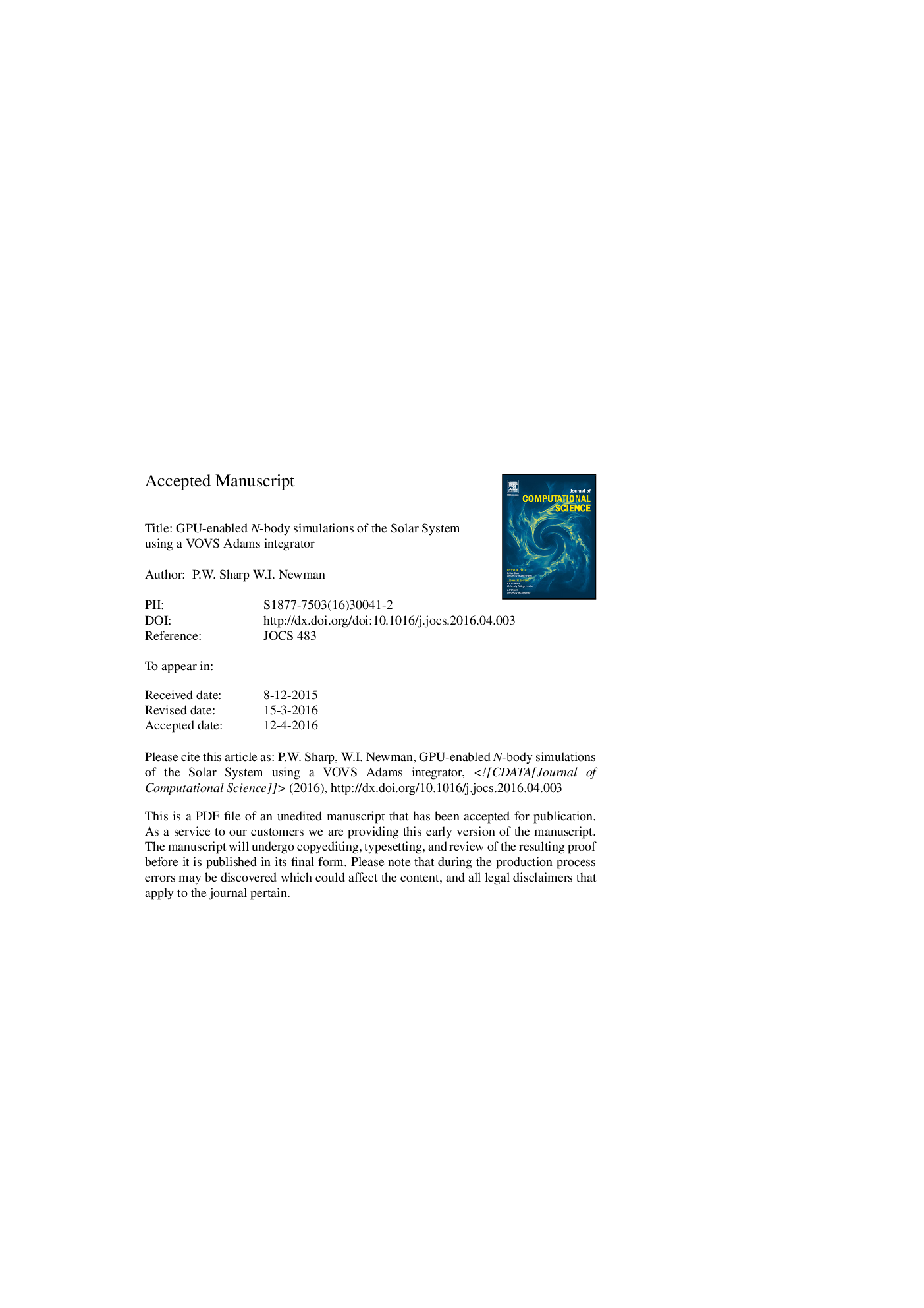| Article ID | Journal | Published Year | Pages | File Type |
|---|---|---|---|---|
| 6874527 | Journal of Computational Science | 2016 | 28 Pages |
Abstract
Collisionless N-body simulations over tens of millions of years are an important tool in understanding the early evolution of planetary systems. We first present a CUDA kernel for evaluating the gravitational acceleration of N bodies that is intended primarily for when N is less than several thousand. We then use the kernel with a variable-order, variable-stepsize Adams method to perform long, collisionless simulations of the Solar System near limiting precision. The varying stepsize means no special scheme is required to integrate close encounters, and the motion of bodies on eccentric orbits or close to the Sun is calculated accurately. Our method is significantly more accurate than symplectic methods and sufficiently fast.
Keywords
Related Topics
Physical Sciences and Engineering
Computer Science
Computational Theory and Mathematics
Authors
P.W. Sharp, W.I. Newman,
